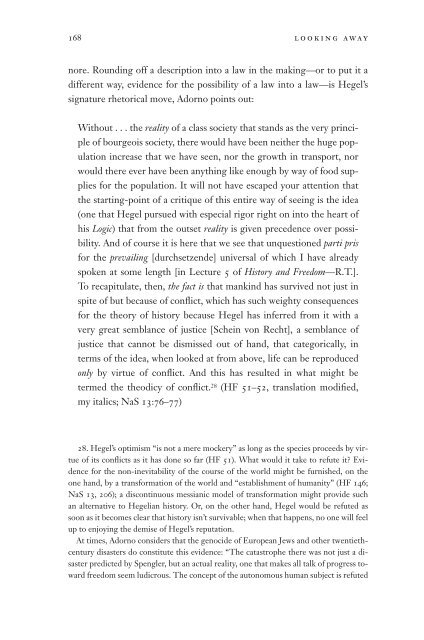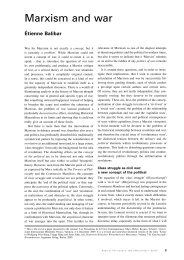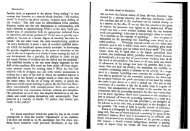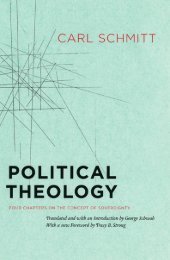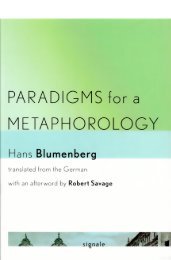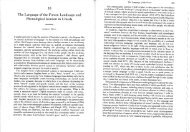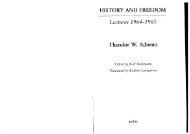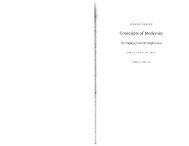Terada - Looking Away (Selections).pdf - Townsend Humanities Lab
Terada - Looking Away (Selections).pdf - Townsend Humanities Lab
Terada - Looking Away (Selections).pdf - Townsend Humanities Lab
You also want an ePaper? Increase the reach of your titles
YUMPU automatically turns print PDFs into web optimized ePapers that Google loves.
168 looking away<br />
nore. Rounding off a description into a law in the making—or to put it a<br />
different way, evidence for the possibility of a law into a law—is Hegel’s<br />
signature rhetorical move, Adorno points out:<br />
Without...thereality of a class society that stands as the very principle<br />
of bourgeois society, there would have been neither the huge population<br />
increase that we have seen, nor the growth in transport, nor<br />
would there ever have been anything like enough by way of food supplies<br />
for the population. It will not have escaped your attention that<br />
the starting-point of a critique of this entire way of seeing is the idea<br />
(one that Hegel pursued with especial rigor right on into the heart of<br />
his Logic) that from the outset reality is given precedence over possibility.<br />
And of course it is here that we see that unquestioned parti pris<br />
for the prevailing [durchsetzende] universal of which I have already<br />
spoken at some length [in Lecture 5 of History and Freedom—R.T.].<br />
To recapitulate, then, the fact is that mankind has survived not just in<br />
spite of but because of conflict, which has such weighty consequences<br />
for the theory of history because Hegel has inferred from it with a<br />
very great semblance of justice [Schein von Recht], a semblance of<br />
justice that cannot be dismissed out of hand, that categorically, in<br />
terms of the idea, when looked at from above, life can be reproduced<br />
only by virtue of conflict. And this has resulted in what might be<br />
termed the theodicy of conflict. 28 (HF 51–52, translation modified,<br />
my italics; NaS 13:76–77)<br />
28. Hegel’s optimism “is not a mere mockery” as long as the species proceeds by virtue<br />
of its conflicts as it has done so far (HF 51). What would it take to refute it? Evidence<br />
for the non-inevitability of the course of the world might be furnished, on the<br />
one hand, by a transformation of the world and “establishment of humanity” (HF 146;<br />
NaS 13, 206); a discontinuous messianic model of transformation might provide such<br />
an alternative to Hegelian history. Or, on the other hand, Hegel would be refuted as<br />
soon as it becomes clear that history isn’t survivable; when that happens, no one will feel<br />
up to enjoying the demise of Hegel’s reputation.<br />
At times, Adorno considers that the genocide of European Jews and other twentiethcentury<br />
disasters do constitute this evidence: “The catastrophe there was not just a disaster<br />
predicted by Spengler, but an actual reality, one that makes all talk of progress toward<br />
freedom seem ludicrous. The concept of the autonomous human subject is refuted


